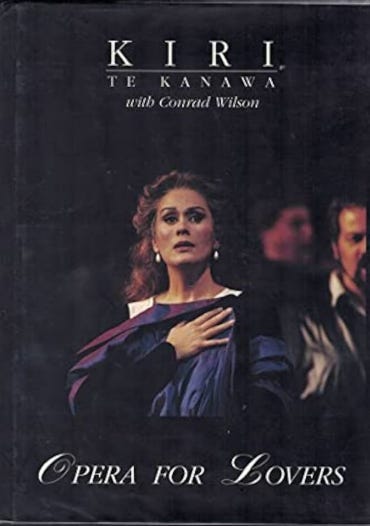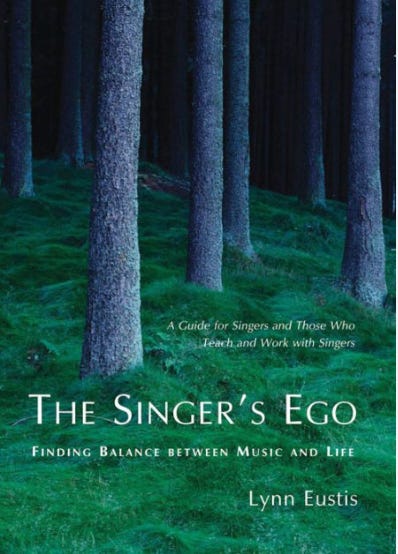Performance Notes We Didn’t Ask For: Part 1
Navigating Unwanted Feedback as a Performer
Don’t take criticism from someone you wouldn’t take advice from.
-Greg McKeown
**This is part 1 of our first “tell-all”. In these stories, specific details about situations will be altered to protect involved parties. We don’t believe what happened in these situations was done in malice, but we do want to encourage performers (including ourselves) to advocate for themselves in a kind, yet direct manner, and encourage a more intentional way forward.**
Feedback is a tricky thing. Too much, too early or the wrong person says the wrong thing in the wrong way, and the performer shuts down. As performers, we know that giving and getting feedback is part of the process. But, hot take: You shouldn’t take everyone’s feedback. In fact, doing so might be one of the quickest ways to wreck your next performance.
As a young singer, I took every comment I received as undeniable truth. I took all feedback seriously. From my choral directors, voice teachers, families, friends, etc. In my young mind, everyone’s feedback seemed way more important than my own. I had incredible directors, teachers, and “authorities” in my life who deeply influenced the way I sang, and I took every direction without question. However, I also took on feedback that wasn’t valuable and let it shape and warp the opinion I had of my own voice.
As I grew in both maturity and vocal development, I struggled to narrow down who I should welcome feedback from. I still craved positive affirmation from everyone I deemed as an “authority”, still guided by that younger version of myself, completely melting at the slightest “negative” comment. I was wrapped up in my voice as my identity, so any feedback swiftly felt like a personal assault.
When I started performing again several years ago, I had an experience where immediately after running my solo with the orchestra, an orchestra member who I had never met pulled me aside while I was still on stage, pointed to a note, and said “that’s supposed to be an F”. I stared at the music in confusion, because obviously I knew what note it was. They continued to explain to me that I was singing the note wrong while internally I started to panic. A seemingly innocuous comment, but I completely spiraled. I knew I’d been out of the game for a while, but I’d never struggled with landing my notes. The performance was that same week and I completely shut down. If I couldn’t sing the right notes, Why did they hire me? Apparently everyone was about to find out I’m an awful singer and I couldn’t back out of it! I went home, crawled in bed, and hid.
I was tempted to hide in bed and sleep the day away, but instead I sat up, texted a friend to get her voice teacher’s number, and scheduled a voice lesson. I knew I wanted to show up as my best self, but my foundation had been shattered and I just needed an opinion from a professional vocalist. I needed to find firm ground both vocally and mentally so that I could show up and sing with my whole self. That time with a voice teacher was pivotal. It reminded me how much I loved diving into my own vocal development, but it also tethered me back to the ground. While the opinions of others mattered to me, I realized that the advice from a voice teacher carried more weight and drowned out the other noise.
As the years have passed, I still struggle with feedback about my voice. When the feedback is technical, around rhythm or ensemble, it feels manageable. But as soon as it comes to how I sing something, I immediately feel uncertain. My voice and identity are still so intermingled, and it’s sometimes difficult to differentiate them. I once discussed this with my voice teacher. I’d had a day where I was feeling insecure about my voice and started to question everything. My vowels, the size of my voice, my vibrato, whether or not I could even sustain a pitch. I had let someone’s simple, well-intended feedback get into my head and I began to question everything I had worked on for years. Could I even sing? Nope. Time to throw in the towel. My teacher calmly looked at me and said “no one gets to have an opinion on your voice except you”. What a simple, powerful statement. It echoed in my brain, and a weight lifted from my body. It was the permission and affirmation I think I always needed. I had liked my performance before I received feedback, and those simple words affirmed that my own opinion was not only valuable, but more important than the feedback I was receiving.
So I’m still learning, but now I’m choosing whose opinions I value and allowing myself to brush off the rest. I only want to receive from those who will help me grow and become fully confident in my own voice for what it is, unapologetically.

For the fifth time in what seemed like as many minutes, the person at the keyboard spoke again. “Let’s try that again, but this time, focus on singing with more tone. Your cords are not closing cleanly.” I was barely into my solo after a few minutes of introductions and chit chat. I looked out into the church. A few people were scattered in pews, looking on silently. I was frozen on the platform. Awkwardness bloomed in the air like the stench of a corpse flower. I inwardly grimaced.
I was not, in fact, in a masterclass. No–this was my first sub call at this church. Which also coincided with the first sub call for this particular organist. Yes. We were both subs. Hired professionals, paid to facilitate worship (not that worship services should be any less excellent, but again, context is important!).
I kept thinking, “I can’t believe this is happening! Who does this? And before a church service? I don’t even know this person.” Furthermore, the organist had no idea what I sounded like, even a few minutes ago. How far I’d come. How much I’d overhauled my technique in the past few months. How many lessons I’d already spent working on this solo with my voice coach. And now, not only was I having to deal with the normal nerves of performing–in a new space–for new stakeholders for the first time–I also had to figure out how to kindly, yet firmly, advocate for my voice. And I had no idea what to do. I wanted the floor to swallow me whole. Yes, I understood what the organist was saying, sure. But as we started the solo for the fourth time and the time for the service ticked ever closer, the music committee congregants were starting to get restless. Everyone (save one) was aware we needed to move on so that the pre-service preparations could continue. And my voice was starting to flag. I needed to stop soon if I was going to have enough voice for everything the service required. However, my anxiety won out in this particular situation–I didn’t say anything. I just tried to become more and more “distant” in my manner during the rehearsal to try to get the point across. But, we didn’t stop. Instead, we moved into another room and continued rehearsing until a few minutes before the service. And, in the service, my voice suffered.
Afterwards, I reached out to a few colleagues I trusted to help me unpack what had happened. Was this normal? I was new to this gig circuit. I was assured it was not normal…nor had anyone ever dealt with a similar situation.
If I had to do it again, I would probably say something like this: “I hear that you’re trying to be helpful, and want me to sound my best. However, for me to sound my best for this service, I’m going to need to stop so I can save my voice.” Kind. Clear. Firm. Full stop.
These situations might be outliers, but if you’ve been performing for very long, you’ve probably been the receiver (or maybe the accidental offender) of giving unwanted, inappropriate feedback. In part two, we’ll be discussing some of the questions we ask ourselves (or each other) to filter feedback we receive.
Have you (or a *ahem* “friend”) had a similar experience? Or been an accidental offender? How did you/your “friend” handle it, or how would you/your “friend” handle the situation another time? We’d love to hear from you in a comment or email!
Xoxo,
Kaitlyn + Sarah
Currently Reading
Kaitlyn: Opera for Lovers by Kiri Te Kanawa
3.5 stars. I just finished this the other day. I found parts of this book very interesting, and enjoyed Te Kanawa’s straightforward attitude to many aspects of her career, but missed the “inner life” perspective offered by Renée Fleming’s and Jessye Norman’s autobiographies.
Quote to share: “Nobody is going to shoot you if you have made one small mistake [in a performance].”
Sarah: Singer's Ego: Finding Balance Between Music And Life by Lynn Eustis
Quote to share: “The audience is not the enemy, despite the undeniable fact that some of its members will be surely critical. If we are not prepared to live in the moment and lose ourselves in love with the music, we will be unable to let the audience into our stories.”
Upcoming Performances
Music for Lent with Choir and Orchestra, Including The Messiah: Excerpts, Part 2
Sarah Hamilton, alto soloist
April 6, 2025 at 5pm
Trinity Episcopal Church, Staunton, VA
FREE







Omg the sub organist. Who likely knows nothing about the voice. Ugh